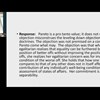puzzles
Richard Arneson: Should we reward the deserving? Some puzzles
Richard Arneson is a political philosopher with a special interest in theories of social justice. AbstractDo plausible fundamental principles of justice incorporate the idea of rewarding the deserving?

Richard Arneson: Should we reward the deserving? Some puzzles
Do plausible fundamental principles of justice incorporate the idea of rewarding the deserving? Utilitarianism is famously indifferent between a world in which saints fare badly and scoundrels fare we
The Tyranny of Political Correctness? A Game-Theoretic Model of Social Norms and Implicit Bias
Journal of Applied Philosophy Abstract This article sets out to describe and solve two puzzles that emerge in segregated labour markets (e.g. the USA or Sweden). First, in many hiring contexts people prqualification norm

Melinda A. Roberts
I am a professor of philosophy at the College of New Jersey and serve as the coordinating prelaw advisor for the College. Previously, I worked as an associate at the law firm of Cleary, Gottlieb in Ne

Elizabeth Finneron-Burns
I am a post doc working with Krister Bykvist and Gustaf Arrhenius on the Valuing Future Lives project. I submitted my DPhil thesis at Oxford University in September 2015. Before studying at Oxford I wo
Age Discrimination: Is It Special? Is it Wrong?
In Bognar, G & A. Gosseries (red.) Ageing without Ageism? Conceptual Puzzles and Policy Proposals. Oxford Academic. Abstract This chapter examines the moral status of age discrimination by bringing t
Edward Page: Addressing future loss and damage associated with climate change
Edward Page, Associate Professor of Political Theory, University of Warwick ABSTRACTClimate change, by damaging the quality of life of populations already suffering from acute vulnerability and hardshi the adoption of measures of mitigation and adaptation and a ‘second-order injustice’ if the associated losses and damages arise as of these measures. Both forms of injustice involve ‘losses and damages’ arising that would not have occurred but for climate change but raise distinct normative problems given their diverging origins. This research seminar explores some key normative puzzles raised by the new ethics and politics of ‘loss and damage’ as it relates to both first-order and second-order climate change injustice. In particular, the lecture focuses on which normative principles should guide measures seeking to address first-order and second-order climate change injustices experienced by states and how (if at all) new forms of policy can be designed that respect these principles.
Beyond Uncertainty. Reasoning with Unknown Possibilities
Cambridge University Press The main aim of this Element is to introduce the topic of limited awareness, and changes in awareness, to those interested in the philosophy of decision-making and uncertain

Completed: Firms as Political Activists: The Scope and Nature of Corporate Political Responsibility
This project explores the changing political role of corporations in the 21st century by combining political science, sociology, and business science.
The long shadow of lobbying: ideational power of lobbying as illustrated by welfare profits in Sweden
Interest Groups & Advocacy volume 10, pp.47–67 AbstractThe weak correlation between lobbying and policy outcomes is puzzling. The main argument developed here is that the puzzle is partly caused by








